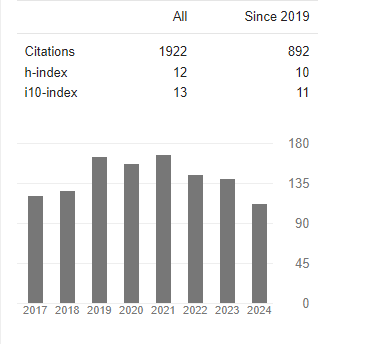Lipid Profiles, Cardiovascular Disease Risk and Dyslipidemia in HIV Positive Patients on HAART at Machakos Level Five Hospital, Machakos County
Abstract
Sarah Malinda Syengo, Brian Kipngetich Mutai, Nelson Chengo Menza and Scholastica Gatwiri Mathenge
This study determined the lipid profiles, dyslipidemia and cardiovascular disease risk as well as their associated risk factors in patients who are positive for the human immunodeficiency virus on antiretrovirals. The study adopted a cross-sectional design. Blood samples were analyzed to determine lipid profiles and dyslipidemia. Framingham Risk Score was used to determine cardiovascular disease risk. Descriptive statistics, Pearson’s Chi- Square test, bivariate and multivariable logistic regression analyses were performed. A p -value of ≤0.05 with corresponding 95% confidence interval was considered statistically significant. Participants using Protease Inhibitors were four times more likely to have a high Total Cholesterol to High Density Lipoprotein cholesterol ratio compared to those using Non- Nucleoside Reverse Transcriptase Inhibitors (OR =4.19, 95% CI: 1.03 - 17.02) p<0.05. Based on the Framingham risk score, 71.2%, 18.5%, 9.8% and 0.5% participants had low, moderate, moderately high and high cardiovascular disease risk respectively. Age, high-density lipoprotein, smoking and systolic pressure were significantly associated with a high Framingham Risk Score (p<0.001). Gender and duration on antiretrovirals were also significantly associated with high cardiovascular risk (p= 0.001). The overall prevalence of dyslipidemia was 74.5%. Age, systolic blood pressure and hypertension were significantly associated with dyslipidemia (p=0.005, p=0.049 and p<0.001) respectively. Gender, age, systolic pressure, hypertension, smoking and history of cardiovascular disease were significantly associated with cardiovascular disease risk (P= <0.001). The study offered information that will inform the policy makers on better approaches to employ in addressing the health outcomes for people living with the Human Immunodeficiency Virus under treatment with antiretrovirals.



